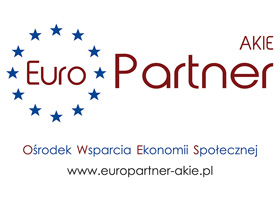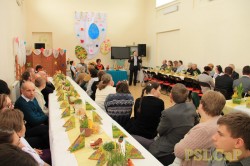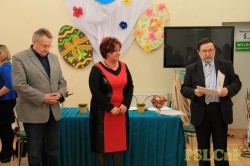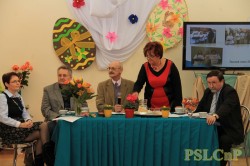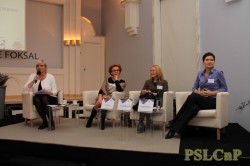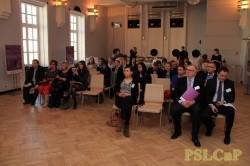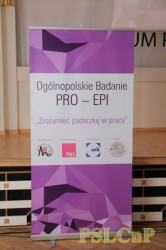LEARN:
DOWNLOADS:
Association's Statute (PDF, Polish)
REPORTS:
Reports database (external website, Polish)
Links:
International Bureau for Epilepsy
Departments of the Association:
- Lodz Department of the Polish Association for People Suffering from Epilepsy
Sikorskiego 30 lok. 62, 95-035 Ozorków
Tel./fax: +48 42 277 17 73
E-mail: biuro@pslcnp.pl
Warsztat Terapii Zajęciowej
Kościuszki 31, 95-035 Ozorków
Tel.: +48 42 277 17 73
E-mail: biuro@pslcnp.pl
Ośrodek Wsparcia Społecznego Osób Niepełnosprawnych
Kościuszki 31, 95-035 Ozorków
Tel.: +48 42 277 17 73
E-mail: biuro@pslcnp.pl
- Club of the Polish Association for People Suffering from Epilepsy
Hetmańska 52 lok. 27
58-316 Wałbrzych
Tel.: +48 791 730 217
THE REASONS OF EPILEPSY APPEARING
In almost half cases the reason of attacks is unknown because of lack of premise for noticeable or presumable basic brain illness. The reasons are very varied, both congenital and acquired and, in very rare cases, genetic. The main acquired factors causing epilepsy attacks there are: incorrect course of pregnancy and delivery, the head injury, diseases of cerebral vessels, poisonings, diseases of metabolism and strokes. The great group makes spontaneous epilepsies with unfixed unambiguously reasons. The group of 400 thousand people suffering from epilepsy in Poland has got specially limited possibilities to learn, to obtain a profession, to obtain an employment and to preservation the employment. Still in the society there are myths and superstitions coming from the Middle Ages regarding people suffering from epilepsy. The employment and school are for people suffering from epilepsy a base of rehabilitation. This is not only humane but also economic problem because the people suffering from epilepsy, when they are employed they may good serve for the national economy with their knowledge and qualifications. At the present time the people suffering from epilepsy are shoved away, isolated and discriminated in all spheres of the public life. They are deprived of professional and social promotions and of participation in the political life. Since 1985 the Association demands regulation of the status of the person suffering from epilepsy in Poland. Unfortunately the ministers have been indifferent to this problem important socially and politically.
MEDICAL EXAMINATIONS
The complete medical examination stating the epilepsy consists of an accurate interview regarding the prior and present disease history and a very detailed description of attack symptoms. During collecting the medical interview the doctor should obtain following information:
- general information:
-
course of pregnancy and delivery
-
psychomotor development
-
past diseases
-
family interview
- information regarding attacks:
-
time and circumstances of appearing and duration
-
from what symptoms the attack begins
-
was the patient conscious during the attack
-
what symptoms accompanied the attack
-
symptoms after attack
It should be conduct the exact diagnosis after appearance of the attack in all patients. The aim is to establish the kind of epilepsy, the eventual brain illness and to establish the reason of attacks.
The most made examinations are:
-
neurological examination
-
laboratory blood examination
-
examination EEG
-
neuroradiological examination (computer tomography of head and magnetic resonance)
THE FIRST AID (during the convulsive epilepsy attack)
-
Keep cool. The most attacks recede spontaneously within 2 - 3 minutes.
-
If the patient is at a dangerous place (for example on the street), secure the safety. To avoid injury, put the patient's head on a soft ground.
-
Put the patient on his side - this position protects against choking, but do not try to hold him.
-
Do not put any object into the mouth at any time - this does not help and may cause injury of the palate or teeth.
-
After the attack the patient may be dazed for 5-30 minutes. Be with him as long as his health condition comes back to the norm.
-
Do not give any medicine or drink or food.
-
The sleep after the attack is for the patient a natural and favourable phenomenon.
-
Notify the ambulance service if the attack is longer then 7-10 minutes. If the attack receded and the patient has been treated chronically, it is not necessary.


